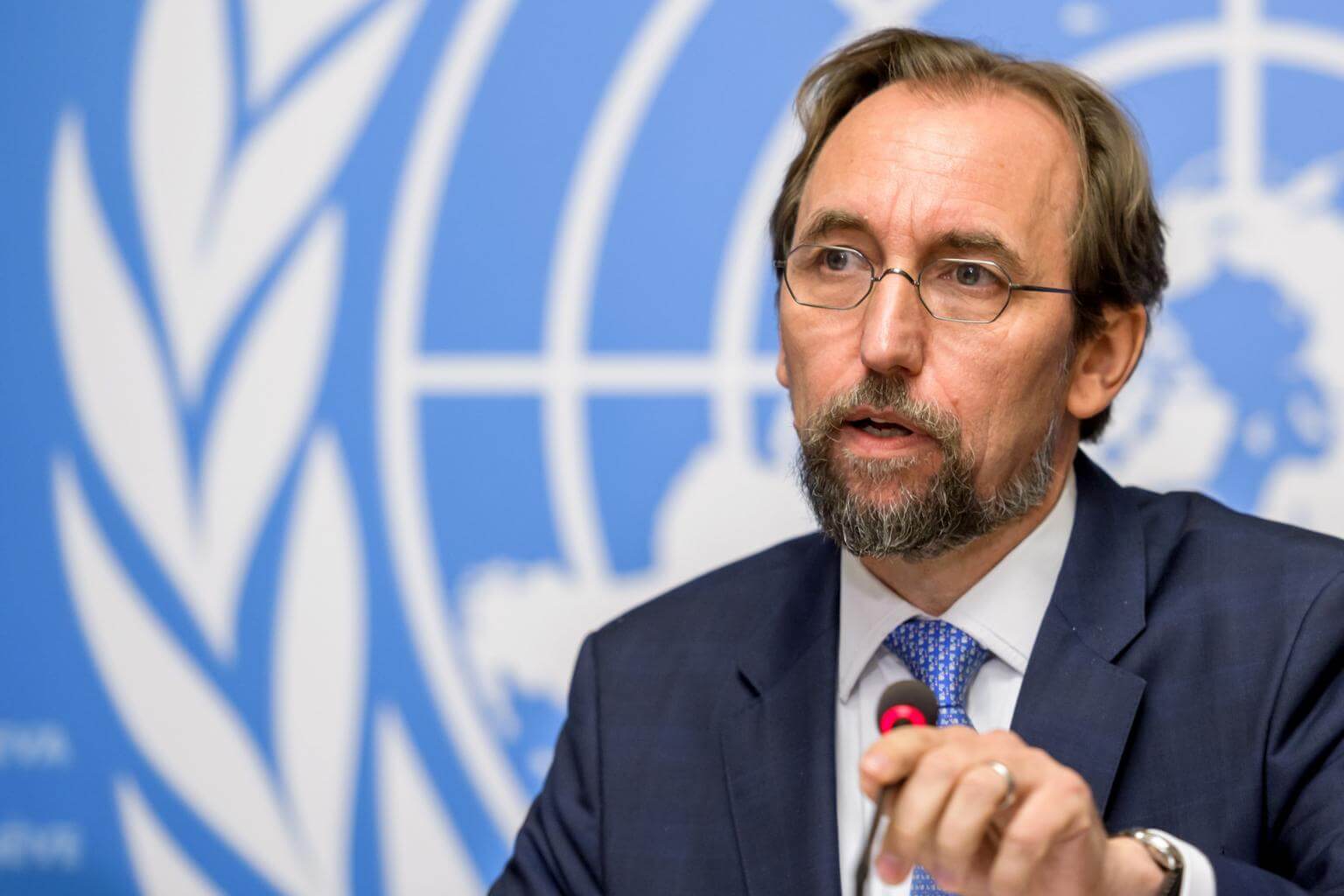Freedom of the press under attack from Donald Trump, could incite violence against journalists: UN rights boss Zeid Ra'ad al-Hussein
Sign up now: Get ST's newsletters delivered to your inbox

United Nations High Commissioner for Human Rights Zeid Ra'ad Al Hussein delivers a press conference on a report on Venezuela at the UN Offices in Geneva on Aug 30, 2017.
PHOTO: AFP
GENEVA (Reuters) - US President Donald Trump's criticism of journalists amounts to an attack on the freedom of the press and could provoke violence against reporters, the United Nations' human rights chief said on Wednesday (Aug 30).
Zeid Ra'ad al-Hussein said Trump had also made worrying remarks about women, Mexicans and Muslims and went on to question the president's approach to immigration and decision to pardon former Arizona lawman Joe Arpaio.
There was no immediate response from the White House on the wide-ranging rebuke of Trump's repeated references to the "fake media" and some of his other statements and decisions.
"It's really quite amazing when you think that freedom of the press, not only sort of a cornerstone of the US Constitution but very much something that the United States defended over the years is now itself under attack from the President," the UN High Commissioner for Human Rights said.
"It's sort of a stunning turnaround. And ultimately the sequence is a dangerous one," he told a news conference in Geneva.
Referring to the New York Times, Washington Post and CNN, he added: "To call these news organisations 'fake' does tremendous damage and to refer to individual journalists in this way, I have to ask the question is this not an incitement for others to attack journalists?"
Zeid voiced concern that a journalist from the Guardian had been "assaulted in the United States most recently" but gave no details.
Zeid voiced concern that a journalist from the Guardian had been "assaulted in the United States most recently" but gave no details.
Trump rounded on journalists last week, calling them "truly dishonest people" and criticising their coverage of a white supremacist-organized rally in Virginia and the political fallout from his comments that violence there was caused by"many sides".
'TABOO BREAKER'
Nazi salutes, swastikas, anti-Semitic slurs and racist references to African-Americans had "no place in the United States or beyond", Zeid said, in his first comments on the events in Charlottesville. Trump has also made worrying remarks about women, Mexicans and Muslims, "mocked a person with disabilities publicly" and issued a directive on a transgender ban in the military, he said.
"The President prides himself as a taboo breaker, indeed his supporters see him as such. But at the time I expressed my feeling that this was grossly irresponsible, because it has consequences, it emboldens those who may think similarly to sharpen their assaults on these communities," he said.
Zeid voiced deep concern at Trump's pardon of Arpaio, who was convicted of criminal contempt in a racial profiling case that highlighted tensions over immigration policy.
"Does the President support racial profiling, of Latinos in particular, does he support abuse of prisoners? Arpaio referred at one stage to the open-air prison that he set up as a concentration camp, he later recanted said it was a joke," Zeid said. "Does the president support this? These actions have consequences."
Zeid, comparing the leadership role of a US president to a bus driver, said: "I almost feel that the President is driving the bus of humanity and we're careening down a mountain path. "And in taking these measures, at least from a human rights perspective, it seems to be reckless driving."


